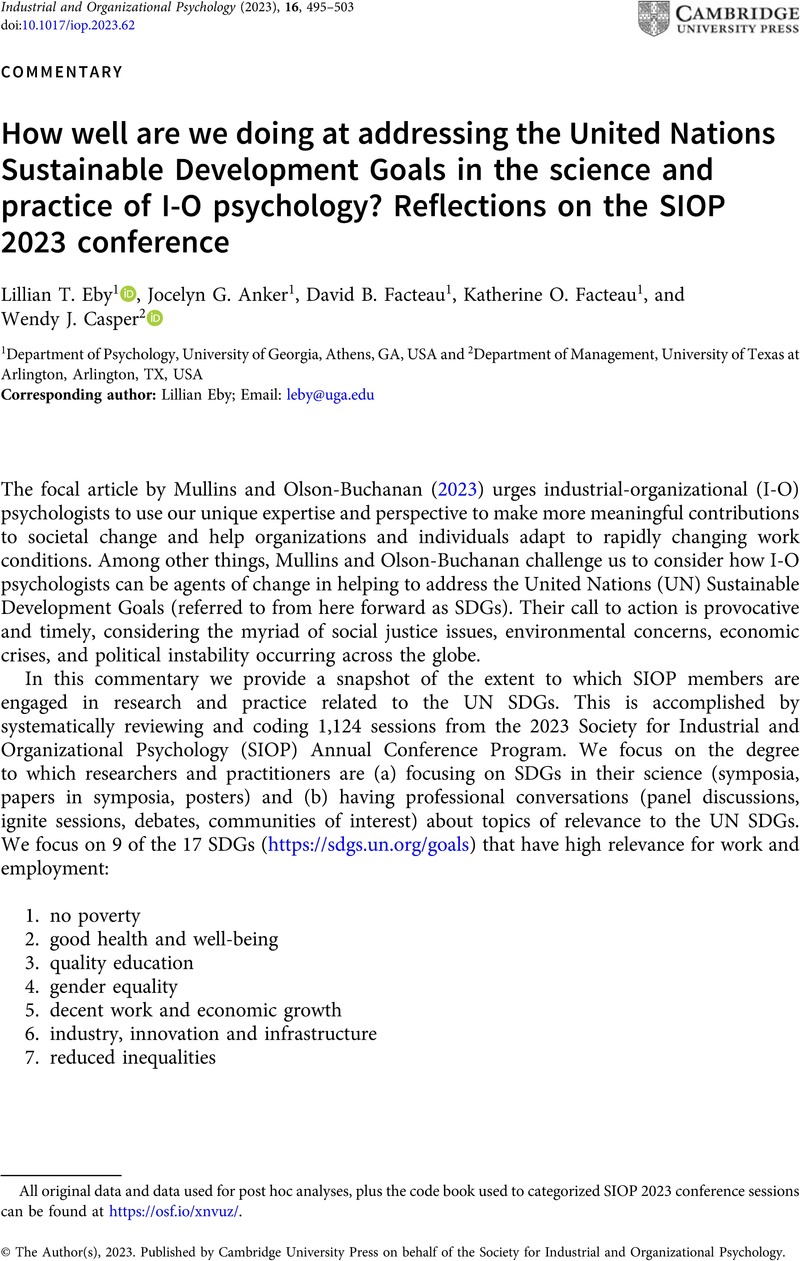No CrossRef data available.
Published online by Cambridge University Press: 22 November 2023

All original data and data used for post hoc analyses, plus the code book used to categorized SIOP 2023 conference sessions can be found at https://osf.io/xnvuz/.